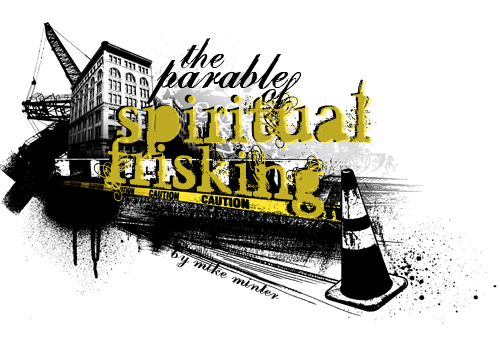IF/THEN: If I Believed in the Golden Rule
IF I BELIEVED IN THE GOLDEN RULE, THEN I would see others as more important than I see myself. “…But in lowliness of mind let each esteem other better than themselves.” (Phil. 2:3)
This is such a hard truth to accept. Rationalization can readily get the upper hand in this one. Why should I treat others with such sacrificial love when they don’t treat me that way? It’s the old “I’ll scratch your back if you’ll scratch mine” deal. But that philosophy simply doesn’t play out very well on the stage of life. This is why the world is in the condition that it is in. It is why families are dysfunctional. It is why there is friction in business and in the church. I don’t know how many times in sharing my faith that the person I am talking to tells me they will go to heaven because they live by the Golden Rule. Has anyone ever lived by the Golden Rule? I mean, really? How many times have you passed by someone who is obviously stranded on the highway and were too busy to help? You didn’t even want to look them in the eye for fear of feeling more guilty than you already felt.
IF I believed in the Golden Rule, THEN I would actually do what I would want done for me in the same situation. For instance, if I were driving along the highway minding my own business and saw someone who looked just like me, I would slow down and take a second look. Suppose it turned out to be me? Would I pull over for me? You bet your booties I would. I would most definitely pull over for me because I really like me. In fact, “like” is not a good enough word for how much I think of me. I am crazy about me. I am my number one fan. Mike is numero uno and deserves to be rescued because he is the greatest. At least, Mike thinks so.
If I lived by the Golden Rule I would not get through the day. I would not make it to work because I would be stopping along the way to help out people the way I would want them to help me. I could not make enough hospital visits or bake enough food to meet every need of the poor. So let’s all agree that none of us lives by the Golden Rule. So why does the Lord tell us to conduct our lives this way? Have you ever noticed that the Lord never says “to the best of your ability, pray when you get a chance,” but rather “pray without ceasing” (I Thes. 5:17)? Have you ever noticed He doesn’t say “meditate if there is time in your schedule,” but rather “meditate day and night” (Psalm 1:2)? The Lord doesn’t say “try your best,” but rather “be perfect as your Father in heaven is perfect” (Matt. 5:8) or “be holy as I am holy” (I Pet. 1:16). God’s standard could never be anything but perfection, thus the Golden Rule.
This is the heart of the Gospel. Christ lived out what I couldn’t. He didn’t have to meditate day and night because he is the living word. He is the answer to prayer. He is the embodiment of the Golden Rule. So to be in Christ is to have carried out all of these impossible demands. II Corinthians 5:21 tells us that we have become the righteousness of God in Christ. The righteousness that we could not achieve he achieved for us. Do we now decide never to pray or live by the Golden Rule? To quote the apostle Paul, “may it never be.”
Instead of the impossible standard of the Golden Rule, this is now our motivation – the power of the Gospel. “….and the life which I now live in the flesh I live by the faith of the Son of God, who loved me, and gave himself for me.” (Gal. 2:20b).
IF/THEN: If I Were Teachable
IF I WERE TEACHABLE, THEN I would not be defensive when criticized.
Rationalization is sure to find its way into this discussion. “But what they said was not completely true,” or “what they said was not given in a kind manner.” So? The question on the table is not the degree of truth in the criticism or how it was delivered, but whether or not there something for me to learn from it. After all, God was not taken by surprise in what was said or how it was delivered, but knew that this was part of being conformed to His image. For this is thankworthy, if a man for conscience toward God, endure grief, suffering wrongfully (1Pet. 2:19). You might get defensive at this point and argue that a half-truth is a lie, and thus the criticism leveled against you is rendered invalid. Not so fast. Half-truths are invalid in the world of objective reality but not subjective reality. A half-truth regarding what your product can deliver will later be brought to your attention as a lie, but a half-truth regarding your character is a different matter.
IF I were teachable THEN I would sift through all that was said and see if there is an element of truth. If I were teachable, I might seek out a good friend and run by them the criticism to see if they have perceived this in me. I don’t like it when I get home from being with friends only to find that I was sporting spinach between my teeth throughout the evening. Why didn’t someone say something? Sporting spinach is a far cry from sporting bad character. Tell me, please! I want to know, even if it is not said in a kind fashion.
Let’s try something on for size. Over the years I have learned a great deal about people and a great deal about me. Let me give you two categories and see if you don’t fit into one or the other. I believe that most people, Christians included, have a fear of man. I realize this is not an original thought, but I suspect some of you recoil at this and are quick to say that you don’t fear anyone. You just exposed your fear. You fear that people won’t see you as not fearing anyone. You want to be seen as tough and self-sufficient.
You may even like to display your success by material possessions or letting others know of your success in business. The thought of people seeing you as a failure is more than you can handle, but whether or not they like you never comes across your radar. And then there are those of us that fear people won’t like us and find it difficult to confront. If teachable, we can probably see ourselves in one camp or the other. This, more than we know, directs the traffic of our lives. What we avoid and what we seek out is dictated by one of these.
So IF I am teachable THEN I will seek the counsel of the most teachable one of all of whom it was said “that he learned obedience through suffering” (Heb. 5:8). We will suffer in learning to be teachable, but we will be far more Christ-like when it is learned. Any spinach showing?
IF/THEN: If I Were Forgiving
IF I WERE FORGIVING, THEN I would show my understanding of having been forgiven (Col. 3:13). But the power of rationalization is relentless. You see, God can forgive because He is perfect and I am not. How then can I expect to forgive when I lack such perfection? Furthermore, what others have done to me is worse than anything I have done to God, so obviously God can forgive me more readily than I can forgive them. However, if I were forgiving, I would have to take this line of reasoning to its logical conclusion – which is to realize that those I have offended believe that what I have done to them is worse than anything they have done to God. This will always result in a stalemate.
If I were a forgiving person, I would not make comparisons about the degree of wrongdoing but focus on the Cross which is where all forgiveness must be sought. There is a level playing field at Calvary. In the midst of my pain I would return to this hill and ask God to search me and see if there be any wicked way in me (Psalm 139). If I were forgiving, I would not play the numbers game by assigning blame percentages. Rationalization is not easily deterred and you might say that the situation you are hard pressed to let go of is not a percentage issue. They slandered your reputation without being provoked which puts all the blame squarely on their shoulders. Calvary comes into view again because if percentages were assigned, then Jesus would be partially at fault and thus unable to forgive the way He wants me to forgive. However, He did nothing wrong yet took all the blame.
Is there not a message here? The Cross forgives even my unforgiveness. None of us have ever forgiven perfectly, but our Substitute has. He has not only forgiven all who come to Him but has taught us how to forgive those who have hurt us the most. Who do you need to forgive right now? “As” is now a very big word, for we are to forgive AS we have been forgiven.
Did Methuselah Have a Midlife Crisis?
 I realize that most people don’t ponder some of the weird issues that pastors must face. Since I engage a great deal in cultural matters that often must be addressed, it is necessary for me to go to Scripture to get the needed counsel. The matter of a mid-life crisis has surfaced over the last few decades causing much anxiety in our society. The thinking goes something like this: “I just turned 40, and half of my life is over. Where did the time go? What have I accomplished? I thought I would be further along than I am in my career. Is this what success looks like? The next 40 will only be worse because my health will deteriorate and my income potential will wane.”
I realize that most people don’t ponder some of the weird issues that pastors must face. Since I engage a great deal in cultural matters that often must be addressed, it is necessary for me to go to Scripture to get the needed counsel. The matter of a mid-life crisis has surfaced over the last few decades causing much anxiety in our society. The thinking goes something like this: “I just turned 40, and half of my life is over. Where did the time go? What have I accomplished? I thought I would be further along than I am in my career. Is this what success looks like? The next 40 will only be worse because my health will deteriorate and my income potential will wane.”
Such thoughts only exist in materialistic nations. We become attached to health, wealth, power, fun, and stuff that keeps us clinging to this world. Methuselah lived 969 years. I remember wondering a number of years ago if he ever had a mid-life crisis. At 450, did he say to his wife, “Where have the centuries gone? Why, it seems like just 100 years ago we bought our first home.”
What is most interesting is that Scripture never addresses this issue except from an eternal perspective. The Bible tells us that we all have the same life expectancy. It is called a vapor in James 4:14. We are told not to presume upon the future, because we don’t know what will happen tomorrow. When we develop an eternal perspective, “the things of this world grow strangely dim,” as the hymn writer expressed it. We rejoice that we are closer to the new heavens and the new earth than when we first believed.
This is why Scripture exhorts us to think on those things that are above (Colossians 3:1-3). Such a focus keeps us away from the mid-life crisis battle. By the way, if you have eternal life, there is no midpoint.
The Problem of Prosperity
“Keep your life free from love of money, and be content with what you have, for he has said, “I will never leave you nor forsake you.” So we can confidently say, “The Lord is my helper; I will not fear; what can man do to me?” ~Hebrews 13:5-6
While in the Amazon jungle last summer, I discovered something about prosperity. Prosperity offers choices, choices bring conflict, and conflict brings unhappiness. Here is what I mean:
“Hey kids, where do you want to eat lunch after church?”
“I want to go to McDonald’s.”
“No, I want to go to Burger King.”
“We ate there last week! I want to go to Pizza Hut.”
“Everyone shut up – let’s just go home.”
Sound familiar? In the poverty-stricken area of the Amazon I saw some of the happiest children I have ever seen, and they had nothing. There were no choices.
“Hey kids, where do you want to eat after church? Would you like to eat at the McDonald’s that we don’t have or the Burger King that doesn’t exist? What movie would you like to see, the Disney film we don’t have or the adventure film that doesn’t exist?”
The scriptures tell us to be content with what we have. Contentment is coming to a place in my life where I desire nothing as opposed to coming to a place where I have everything.
Hospitality at Conversations
“Be hospitable to one another without complaint. As each one has received a special gift, employ it in serving one another as good stewards of the manifold grace of God. Whoever speaks, is to do so as one who is speaking the utterances of God; whoever serves is to do so as one who is serving by the strength which God supplies; so that in all things God may be glorified by Jesus Christ, to whom belongs the glory and dominion forever and ever. Amen.”
~1 Peter 4:9-11
God mandates Believers to represent the Gospel of Christ by using the gifts He has given for service to one another (1 Peter 4:9-11). Service to one another is a means of growing in our knowledge of Christ (as we serve others, we serve Christ Himself – Matthew 25:40) and an opportunity to make Christ known to others (John 13:35).
While there are always opportunities to serve at RBC, we have a unique opportunity coming up to make Christ known in Northern Virginia through Conversations. Conversations is our annual production the week before Easter in which music, dramas, and real life stories are blended together into a cohesive performance where the Gospel of Jesus Christ is creatively and clearly presented. It is the perfect opportunity for many people to hear and reflect on truth in a comfortable, fun, and non-awkward environment.
As we prepare for Conversations, we need to make sure we are equipped to care for our guests, showing them the value and respect they deserve. We are to show guests hospitality (Hebrews 13:2) with the hope that Christ will break down walls in their lives to enable them to respond to the truth of the Gospel.
There are still many ways to serve for Conversations – through prayer, baking, ushering, greeting, nursery/childcare, and meals for the cast and crew. Please consider how you can participate in the Gospel of Christ through serving others in Conversations this year!
For more information on Conversations: www.restonbible.org/converstations
To register to volunteer online, click here.
How to Encourage
 “And let us consider one another to provoke unto love and to good works” ~Hebrews 10:24
“And let us consider one another to provoke unto love and to good works” ~Hebrews 10:24
1. Learn to encourage daily.
Remember—a person’s self worth hangs on the thin thread of encouragement, and some are at the end of their rope. Don’t wait to give words of comfort.
2. Learn to relate to those who have similar needs.
Be sensitive to those who are going through a trial similar to what you have already experienced. How did you weather the storm? Let them know how God used that difficulty in your life.
3. Learn to be a good listener.
We all need to learn to read between the lines. People rarely unload their problems in bulk. They usually deliver them in small packages just to see if you’re concerned enough to open it. If you do, they will likely make another delivery. No one will expose their deeper feelings to people who show little or no interest. Be a person who cares!
It will never be the nature of a man to encourage, but it will forever be his need.
Remember the Gospel
REMEMBER THE GOSPEL: Reflections on the Lord’s Supper from 1 Corinthians 11:23-26
I just finished listening to Leighann Marquiss share her family’s story (God’s story) of their son, Ryan. What a great God we serve! Leighann said, “…During this time, I realized that God doesn’t only love me to get me to heaven – God loves me today, where I am. ” This reminded me again of the power of the Gospel to impact us in our everyday life, no matter the situation.
Two times in 1 Cor. 11:23-26, Jesus tells his disciples, “Do this in remembrance of me.” What, specifically, does Jesus want us to remember in the partaking of communion? For many years, I thought He wanted me to reflect on and remember His suffering and death. While true, this is not the complete answer. Jesus didn’t just say “this is my body” but “this is my body which is for you; do this in remembrance of me”. Jesus is not just saying “remember my death,” but “remember my death, which is for you.” In short, He is saying remember the Gospel. Likewise, in reference to His shed blood, He didn’t tell us to just remember His shed blood, but to remember His shed blood and what it accomplished, the New Covenant. In short, He is saying remember what I have done for you – remember the Gospel.
We could spend an eternity reflecting on the depths of the Gospel and I trust we will, but for the sake of my fingers (and the fact that dinner is just about ready), let me highlight a few truths of the Gospel. We who have placed our trust in Christ, are:
- Loved by God (always)
- Forgiven (always)
- Righteous in His sight (always)
- Cared for by Him (always)
- The apple of His eye (always)
- Never abandoned by Him (never)
- Never away from His presence (never)
- His children (always)
- Brothers/sisters of the Lord (always)
- Indwelt/empowered by the Spirit of God (always)
This is good news. Scratch that – this is great news. Often times, we (myself included) fall woefully short in seeing and believing the Gospel for our daily lives. The result is that we do not experience the power of the Gospel on a daily basis. Yes, we see the relevance of Christ’s death on the cross for our salvation and our future departure from this world, but what about the time in between? Twice in four verses, the Lord tells his disciples, remember the Gospel, remember what I have done for you. Just as the Gospel impacted Leighann where she “was”, the power of the Gospel can and will impact us where “we are” right now.
Remember and believe the Gospel.
Why We Need to Encourage and Be Encouraged
“But exhort one another daily, while it is called Today; lest any of you be hardened through the deceitfulness of sin.”
~ Hebrews 3:13
1. Because through much tribulation we must enter into the kingdom of God
We all need to be stroked by the warm hand of encouragement. Who can you think of that just might need some right now?
2. Because we receive far more criticism than praise
Our emotional ledger sheet tells the truth. It sure would be nice to get it to balance before the final account. You can help make the difference!
3. Because it develops friendships
We naturally seek out those who refresh us with words of comfort than those who destroy with words of criticism.
4. Because it gives health to the recipient
“Pleasant words are as honeycomb, sweet to the soul, and health to the bones” Proverbs 16:24.
5. Because we hurt far more deeply than we will admit
Most people carry burdens, the weight of which, cannot be estimated by an outsider.
Learn to encourage when you sense a need.
The Parable of Spiritual Frisking
 As believers, we have a tendency to subtly interrogate those who claim allegiance to Christ. We just have to find out where they are spiritually, doctrinally, and morally which often takes place in the course of conversation. The following is a parable about such an experience. All of what I state here is what I have judged others for or have been judged by others. I neither condemn nor condone any of the following judgments listed in the parable.
As believers, we have a tendency to subtly interrogate those who claim allegiance to Christ. We just have to find out where they are spiritually, doctrinally, and morally which often takes place in the course of conversation. The following is a parable about such an experience. All of what I state here is what I have judged others for or have been judged by others. I neither condemn nor condone any of the following judgments listed in the parable.
Continue reading







